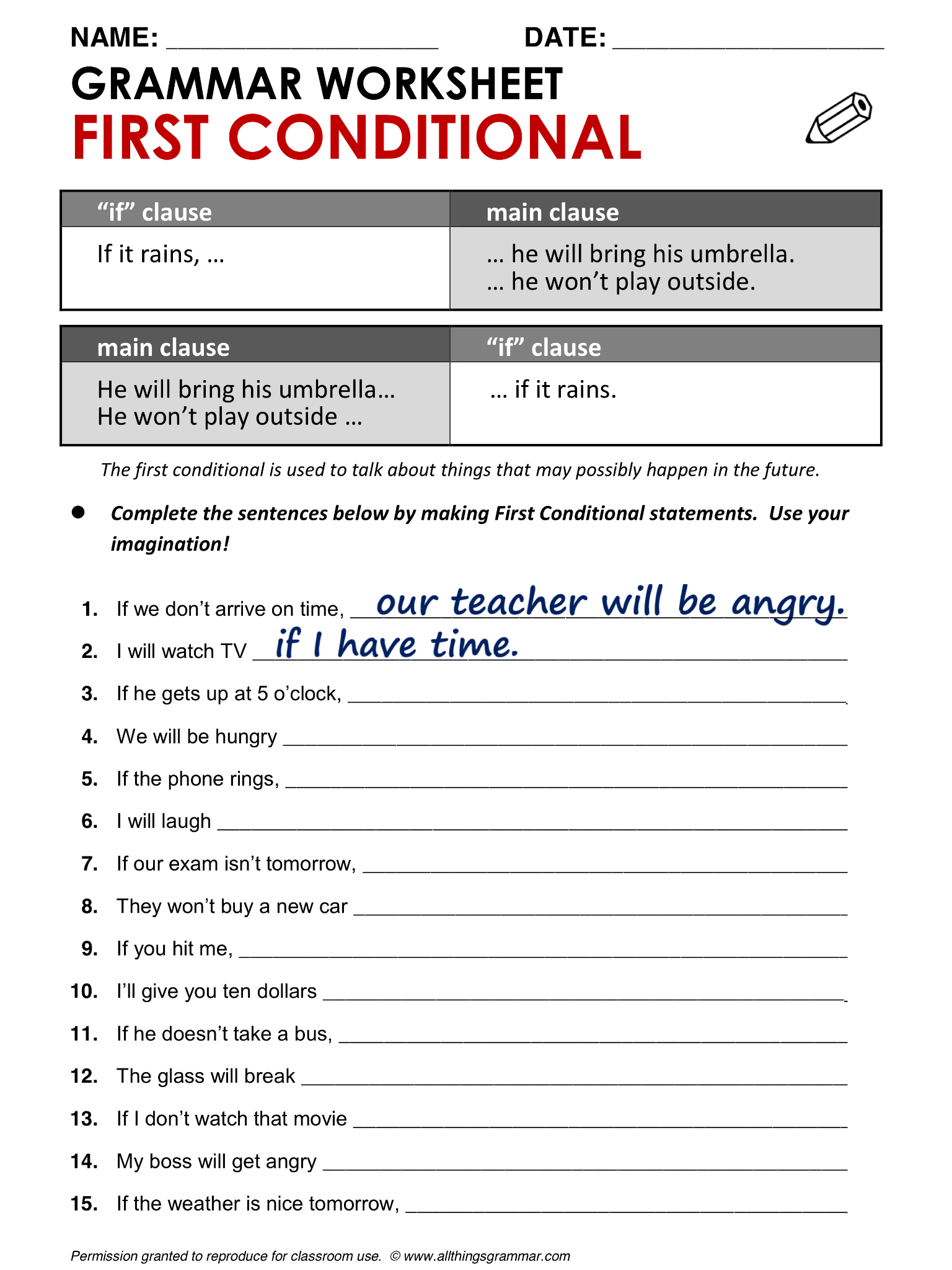Conditional sentences are used to express situations where one thing depends on another. They are made up of two clauses, an “if” clause and a main clause. Practicing these types of sentences can help improve your understanding and usage of them in everyday communication.
It is important to practice different types of conditional sentences to become more familiar with their structures and meanings. By doing exercises and worksheets, you can strengthen your grasp on how to properly form and use these types of sentences.
Worksheet Example:
Below is a practice worksheet for conditional sentences:
- If I _____________ (study) harder, I _____________ (pass) the exam.
- If it _____________ (rain) tomorrow, we _____________ (stay) inside.
- She _____________ (be) happy if she _____________ (get) a promotion.
- If you _____________ (call) me, I _____________ (come) over.
- They _____________ (go) to the beach if it _____________ (be) sunny.
Answer Key:
- study, will pass
- rains, will stay
- will be, gets
- call, will come
- will go, is
Working through exercises like this can help you identify the different types of conditional sentences and how to correctly structure them. It also allows you to practice using the appropriate verb tenses and forms in each clause.
By regularly practicing with worksheets like the one provided, you can enhance your skills in constructing and understanding conditional sentences. This will ultimately improve your overall fluency and confidence in using this grammar structure in your writing and speaking.
Keep practicing and challenging yourself with more exercises to solidify your understanding of conditional sentences. The more you practice, the more natural it will become to use them accurately in various contexts.
